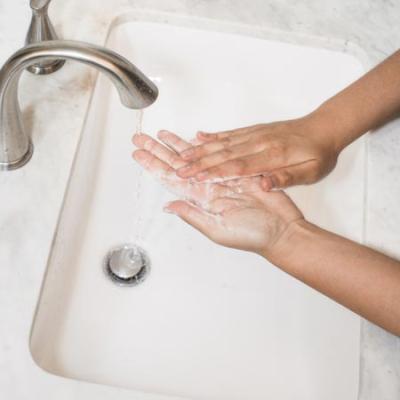Antibacterial Handwash With Triclosan No Better At Eliminating Germs Than Regular Soap
While more convenient, it is definitely not more powerful—new research proved that antibacterial soaps and sanitizers are only just as effective as regular soap.
Triclosan, a common ingredient in many antibacterial soaps and other cleaning agents, is a proven bactericide but was also linked to causing infections, hormonal problems and increased bacterial antibiotic resistance in humans. It is currently under investigation by the Food and Drug Administration (FDA).
In Korea University, researchers tested the germ cleaning effectiveness of triclosan against non-antibacterial soaps. A solution of 0.3 percent triclosan, the legally maximum allowed concentration, and regular soap were used on twenty strains of bacteria including Salmonella, Pseudomonas and Staphylococcus under modified conditions. The team adjusted the sample temperature to simulate normal hand washing procedures in real life conditions.
Afterwards, the bacteria were spread to the hands of 16 volunteers who were told to not use antibacterial soap a week prior. Then, during the test period, they were instructed to hand wash with either regular or antibacterial soap with warm water. Results showed that, while triclosan's effects heightened after nine hours of use, there was no significant difference noted between the antibacterial action of triclosan and regular soap during the required time for hand washing.
"These results suggest that although triclosan-containing soap does have antibacterial activity, the effects are not apparent during the short time required for hand washing," Dr Min-Suk Rhee at the Department of Food Bioscience and Technology said.





















